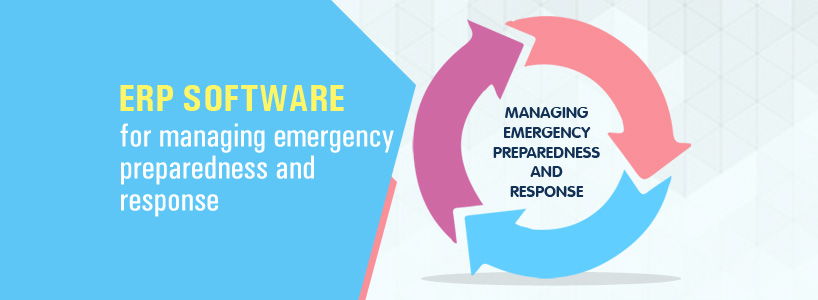In today's world, where natural disasters, pandemics, and other unforeseen events can strike at any time, effective emergency preparedness and response are paramount. Organizations, whether government agencies, corporations, or non-profits, need robust systems to manage their resources efficiently and coordinate efforts during crises. This is where ERP (EduAutomate) software comes into play.
ERP software offers a comprehensive solution for managing various aspects of an organization's operations, including supply chain, finance, human resources, and customer relationship management. However, its capabilities extend beyond routine tasks, making it an invaluable tool for emergency preparedness and response.
Key benefits of ERP software in emergency management:
- Centralized Information Management: ERP systems provide a single platform to store and access critical information, ensuring that everyone involved in the response effort has the latest data at their fingertips. This includes contact details of key personnel, inventory levels of essential supplies, and evacuation plans.
- Resource Allocation and Tracking: During emergencies, efficient allocation of resources is crucial. ERP software can help organizations track the availability and utilization of equipment, personnel, and supplies, ensuring that they are deployed where they are needed most.
- Communication and Collaboration: Effective communication is vital for a successful emergency response. ERP systems can facilitate collaboration among different teams and departments, enabling them to coordinate their efforts and make informed decisions. Features such as real-time messaging, task management, and document sharing can streamline communication processes.
- Supply Chain Management: Disruptions to the supply chain can significantly hamper emergency response efforts. ERP software can help organizations monitor and manage their supply chains, ensuring that essential supplies are procured and delivered on time.
- Risk Assessment and Mitigation: By analyzing historical data and identifying potential risks, ERP software can help organizations develop effective emergency preparedness plans. These plans can include evacuation procedures, communication protocols, and contingency strategies.
Conclusion
In an era of increasing uncertainty, ERP software has emerged as a powerful tool for managing emergency preparedness and response. By providing a centralized platform for information management, resource allocation, communication, and supply chain management, ERP systems can help organizations mitigate the impact of crises and ensure the safety and well-being of their stakeholders. As the world continues to face new challenges, the importance of investing in robust emergency management solutions cannot be overstated.
